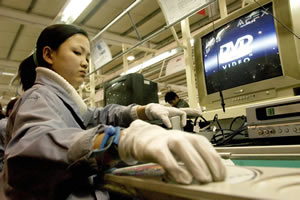After Cheung Shu-hung (appropriately named by unsuspecting parents) was found hung in the warehouse where tainted Mattel products were made, one realizes the high stakes in managing a global supply chain. Apparently Shu-hung's motive was to avoid the fate of Zheng Xiaoyu, former head of China’s food and drug watchdog agency, for approving untested medicine in exchange for cash and gifts totaling $832,000.
When we launched our magazine we starting writing articles about the outsourcing on venerable brands like Barbie and the Steiff Bear and asking what kind of thought process went into these decisions.

Clearly, no thought was put into designing Supply Chains that are transparent, controllable etc. When companies make partnerships,
and test products, they rarely put in place the on going monitoring of the supply chain.
And more importantly, they clearly don’t have a financial model for making total sourcing cost decisions, and most importantly their financial decision models are cost based/ROI, rather than risk based.
 For years I have heard that “this is a cost avoidance idea", or “that is a growth idea” and therefore that project or idea can’t be justified. Hense, it won’t be done. These shortsighted arguments are having their day of reckoning today at companies like Mattel.
For years I have heard that “this is a cost avoidance idea", or “that is a growth idea” and therefore that project or idea can’t be justified. Hense, it won’t be done. These shortsighted arguments are having their day of reckoning today at companies like Mattel.
With thousands of products recalled in North America, and illicit trade growing all too quickly, when do we face the facts? It turns out that the so-called rational decision making is quite flawed.
And even in crisis, it becomes clear how poorly firms understand how their own products are made, when recall is followed by ‘oops’, another recall, by ‘oh no’, not another recall from the same firm.
It’s time to grow up. Managing a global Supply Chain takes adult supervision!
















